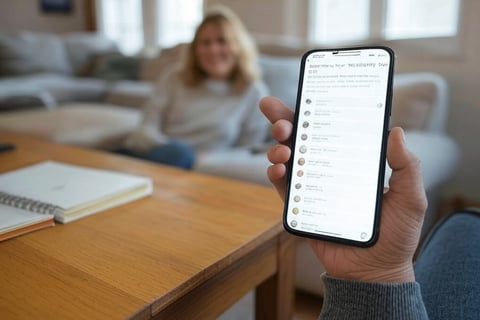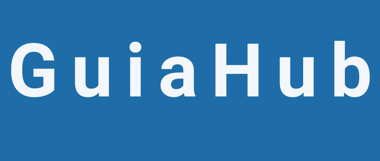How to Deal with Information Overload in Everyday Life
Learn how to deal with information overload in everyday life with practical tips to organize your mind and focus on what matters, without stress!
How to Deal with Information Overload in Everyday Life


Have you ever had one of those days where your head feels so full it might burst? I’ve been there plenty of times, and let me tell you, it’s no fun! Nowadays, we’re swimming in information: the phone won’t stop buzzing, emails keep piling up, the TV is full of bad news, and social media feels like a never-ending stream of stuff. It’s easy to feel lost, anxious, or even exhausted without even realizing why. But here’s the good news: there are simple ways to handle this information overload and bring some calm back to your day. Let’s chat about it like we’re sipping coffee together—I’ll share what works for me and what the experts say. Ready to dive in?
Why Are We Drowning in So Much Information?
First, let me explain why information overload is such a big deal these days. We’re living in the internet age, which is amazing, but also kind of crazy! I came across a study from IBM that says humanity creates 2.5 quintillion bytes of data every day—that’s a number with 18 zeros! And guess what? A lot of that comes straight to us: notifications, emails, posts, videos. It’s like we’re trying to drink from a firehose—there’s just no way to take it all in!
On top of that, social media and apps are designed to keep us hooked. I read in a Nielsen report that in 2023, people spent an average of 3 hours and 15 minutes a day on social media. Three hours! That’s a ton of time scrolling through new stuff, and our brains don’t even get a second to rest. No wonder we sometimes feel like our heads are spinning, right?
How Does This Affect Us?
Now, let’s talk about what all this information does to us. I’ve felt it myself, and I bet you have too. Ever tried to focus on something, like work or studying, but then a message pops up, followed by a notification, and next thing you know, you’re watching a random video on TikTok? It messes everything up! I found a study from the University of California that says after an interruption, like a phone “ding,” it takes us up to 23 minutes to get back to focusing on what we were doing. So, every little notification is basically stealing our attention!
And there’s more: it can make us pretty anxious too. When I spend the day seeing bad news or comparing myself to others on social media, I end up feeling down. I read an article in the Harvard Business Review that explains how information overload can tire out our brains—they call it “decision fatigue.” It’s like our brains get so overwhelmed that they can’t decide what’s important anymore. I’ve been there: by the end of the day, after seeing a million things, I couldn’t even decide what to eat for dinner!
Simple Tips to Deal with Information Overload
Enough about the problems—let’s get to the good stuff: what we can do to lighten the load! I’ve tried a bunch of things to deal with information overload, and I also looked into what experts recommend. Here are some easy tips that have helped me a ton, and I think they’ll help you too.
Turn Off Those Notifications, Please!
You know what used to drive me nuts? My phone buzzing all the time with things like “someone liked your photo” or “don’t miss this sale!” I decided to put an end to it! My first tip is: turn off notifications that aren’t important. I only keep the ones I really need, like messages from family or work. The rest? I turned them all off in my phone settings. It felt like magic—my mind got so much quieter. A study from Stanford University says that cutting down on notifications can lower stress and help you focus better. So, why not give it a try?
Set Specific Times to Check Things
Another thing that totally changed my day was setting specific times to check emails, social media, and news. Before, I’d look at everything all the time, and it made me so scattered. Now, I decided: “I’ll check my emails in the morning and afternoon, and social media only after lunch.” It keeps me from jumping between things all day long. A productivity expert named Cal Newport, who wrote the book Deep Work, says that creating “time blocks” for each task helps your brain focus better and cuts down on that overwhelmed feeling. It’s been working like a charm for me!
Pick and Choose What You Take In
You don’t have to consume everything that pops up in front of you, you know? I learned to follow the “less is more” rule. For example, on social media, I stopped following a bunch of accounts that just filled my feed with random stuff. Now, I only follow people who inspire me or teach me something cool. For news, I pick one or two sources I trust and check them just once a day—no more endless scrolling through news feeds! The American Psychological Association did a study I thought was really interesting, and they say that consuming less news, but from reliable sources, helps lower anxiety and makes you feel better. It really works!
Do a Digital Clean-Up
How about giving your digital world a good clean-up? I did this, and it felt like a weight off my shoulders! I deleted apps I wasn’t using, organized my emails into folders (like “work,” “personal,” “bills”), and got rid of a bunch of old photos and files on my phone. I even deactivated some old accounts I didn’t need anymore. It was so nice that even my phone started running faster! I read in a 2024 Deloitte report that people who do a “digital clean-up” every now and then feel more in control and less overwhelmed. So, take a little time and tidy up—you’ll love it!
Take a Break to Unplug for Real
One of the best things I do is take some time to unplug completely. I like to put my phone away for at least an hour a day—usually in the late afternoon, while I sip some tea or just stare at the sky. During that time, I read a book, go for a walk, or just let my mind wander. It’s like my brain gets to take a deep breath! A study from the University of Sussex, in England, showed that spending 30 minutes a day without screens can reduce stress by up to 20%. I feel it working—it’s like a “power-off” button for my mind.
Tools That Help Me—and Can Help You Too!
Besides these tips, I found some tools that are a lifesaver for dealing with information overload. I’ll share the ones I like best and that experts also recommend.
Distraction Blockers
Know those apps that help you stay focused? I use one called Focus@Will, which plays calming music for working and blocks things that distract me. Another one I love is Forest—it encourages you to stay off your phone by planting virtual trees, and I think that’s so cute! A study from Carnegie Mellon University says that using distraction blockers can boost productivity by up to 25%. I’ve noticed that with them, I get more done without checking my phone every 5 minutes.
Apps to Organize Information
If you’re like me and always saving stuff to “check out later,” apps like Pocket or Notion are awesome. They let you save articles, videos, or ideas in one place, so you don’t end up with a million tabs open in your browser. I use Pocket to save things I want to read on the weekend, and it helps me not feel overwhelmed during the week. It’s like having a neat little folder just for you!
How Can This Change Your Day?
Now, think about this: what if you could manage all this information and bring more calm to your day? I’ve felt the difference in my own life, and I think you will too. When we focus on what really matters, our minds feel lighter, we work better, and we even have more time to enjoy the good stuff—like having dinner with family, cooking something tasty, or just chilling for a bit. You’ll feel more in control, less anxious, and with more energy to do the things you love.
Of course, you don’t have to change everything at once. Start with one or two of these tips and see how it goes. It’s like organizing a messy drawer: little by little, everything falls into place, and you feel so much better!
You Can Sort Out This Mess!
So, what did you think of our chat? Information overload is everywhere these days, but you can handle it in a pretty easy way. Turning off notifications, setting times to check emails and social media, choosing what to consume, and taking a little time to unplug can make your mind feel so much more organized. Tools like Focus@Will and Pocket also help keep everything on track.
Why not start today? Pick one of these ideas and try it for a day. Bit by bit, you’ll notice your mind feeling lighter and your day feeling nicer. You deserve that peace, and I’m rooting for you to find it!
Information overload is everywhere because of the internet and social media.
It can make you distracted, anxious, and tired, as studies show.
Turning off notifications and setting times to check emails and social media helps you focus.
Consuming less news and doing a “digital clean-up” clears your mind.
Unplugging for a bit, like an hour a day, reduces stress and helps you relax.
Tools like Focus@Will and Pocket are great for organizing and avoiding distractions.
Dealing with information overload brings more calm, focus, and time for the things you love.
Sources
IBM. “10 Key Marketing Trends for 2017 and Ideas for Exceeding Customer Expectations.” Available at: https://www.ibm.com/watson-advertising/thought-leadership
Nielsen. “The Nielsen Total Audience Report: 2023.” Available at: https://www.nielsen.com/insights/
University of California, Irvine. “The Cost of Interrupted Work: More Speed and Stress.” 2008. Available at: https://www.ics.uci.edu/~gmark/chi08-mark.pdf
Harvard Business Review. “Overloaded Circuits: Why Smart People Underperform.” 2005. Available at: https://hbr.org/2005/01/overloaded-circuits-why-smart-people-underperform
Stanford University. “Notifications and Attention: A Field Experiment.” 2018. Available at: https://hci.stanford.edu/research/
American Psychological Association. “Stress in America: The Impact of News Consumption.” 2022. Available at: https://www.apa.org/news/press/releases/stress
Deloitte. “Digital Consumer Trends 2024.” Available at: https://www.deloitte.com/global/en/insights/digital-consumer-trends.html
University of Sussex. “Digital Detox: The Effect of Smartphone Abstinence on Stress.” 2019. Available at: https://www.sussex.ac.uk/research/
Carnegie Mellon University. “The Impact of Distraction Blockers on Productivity.” 2020. Available at: https://www.cmu.edu/research/
